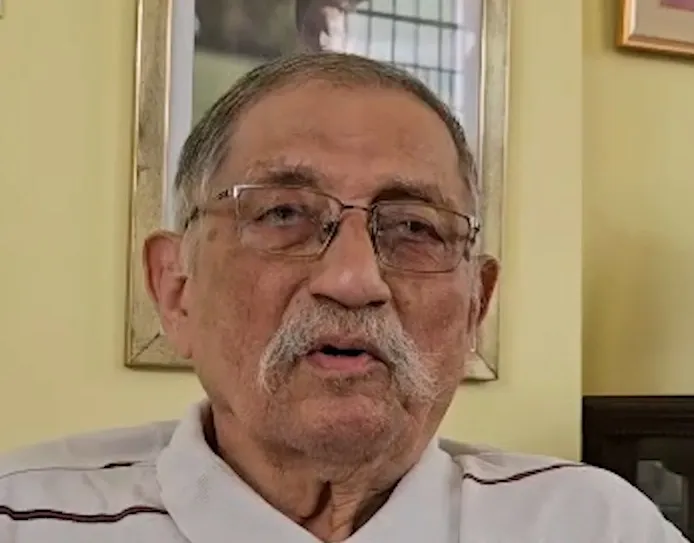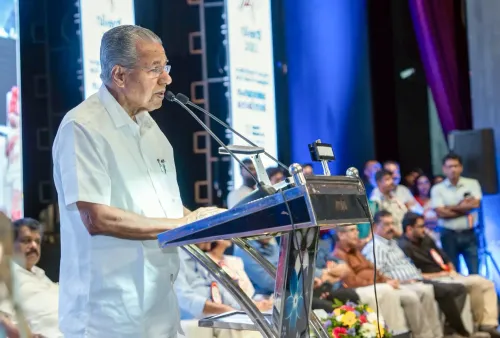Is Pakistan's History of Broken Promises a Cause for Concern?

Synopsis
Key Takeaways
- Pakistan has a longstanding record of violating agreements.
- General Chowdhury emphasizes the need for decisive actions.
- Historical events, such as the 1971 war, inform current perspectives.
- Many veterans express a lack of trust in Pakistan's commitments.
- Pakistan's strategy involves indirect confrontations with India.
New Delhi, May 11 (NationPress) Pakistan has a persistent track record of failing to uphold agreements and often behaves recklessly, as noted by former Army Chief General Shankar Roy Chowdhury in response to the recent ceasefire violation by Pakistan, occurring mere hours after both nations reached a mutual understanding.
The retired Army General was unequivocal and candid in his criticism of the nation, stating, “laaton ke bhoot, baaton se nahin maante” (those who comprehend the language of kicks will not heed words).
Reflecting on the 1971 Indo-Pakistan war, the former Army chief recounted how Pakistan reneged on its commitments following a humiliating surrender to Indian forces, reverting to its previous negative patterns.
He asserted that the only effective strategy to control the neighboring country is through decisive action.
“They must be pounced upon and dismantled. The maximum damage must be inflicted on them,” he expressed.
Significantly, numerous veterans and retired generals have condemned Pakistan for violating the ceasefire agreement on Saturday night, just hours after it was established.
Lt General (Retd) Shankar Prasad emphasized that Pakistan is inherently untrustworthy and highlighted the 1971 instance when it initially submitted to India but soon broke its promises.
“For the past 70 years, we have attempted to trust them. Each time, we have been let down. The most notable example is the 1971 war. A similar agreement was made, resulting in the return of 90,000 prisoners of war. They quickly reneged on their commitments. How can we trust Pakistan? We have been asserting that they have been targeting India for the last 25-30 years, yet they persist in their denial,” the Lt General remarked.
He concluded that Pakistan recognizes its inability to confront India directly and thus continues its strategy of “bleeding India by a thousand cuts,” a tactic devised by previous leaders.










